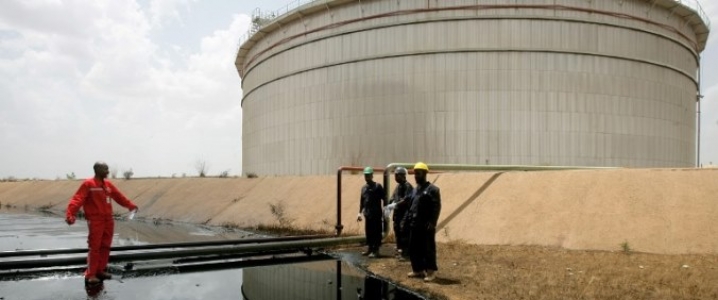War-torn South Sudan could become a significant oil producer in the region if the country can manage to maintain a peace deal reached between warring sides in September. However, according to UN peace-keeping head Jean-Pierre Lacroix, peace in the nation of some 10.2 million is fragile and contingent on several factors. on Tuesday that “the peace process is not yet assessed as fully sustainable and irreversible and will need positive engagement and compromise from the parties if it is to deliver genuine hope and relief to the suffering South Sudanese populations.”
While there has been “a significant improvement in the general security situation of the country” since the peace agreement was signed, sporadic clashes have taken place “indicating that the improvements remain fragile,” Lacroix said. He added that the responsibility to sustain “momentum” in implementing the agreement “lies solely with the parties.” South Sudan has had internal conflict since it declared independence seven years ago from Sudan. Fighting in the country has seen an estimated 400,000 people killed amid allegations of sexual violence and mass rape being used as weapons of war.
Amid the fledgling hope that South Sudan can maintain its fragile peace, China, now Africa’s largest investor, has chimed in. A Chinese envoy on Tuesday called for international help to push forward the peace process in South Sudan, according to a report in Chinese state-run Xinhua. Wu Haitao, China's deputy permanent representative to the UN, said that after prolonged conflicts, a lot needs to be done.
He added that the implementation of the September 2018 revitalized peace agreement and the relaunch of economic development need enormous funding and other forms of international support. The international community should fully respect South Sudan's leadership in dealing with its own issues and avoid the imposition of solutions, said Wu.
Politics and oil don’t always mix
There are significant takeaways from South Sudan’s fragile peace process, including how it will impact not only the country’s politics but overall oil production in the region. South Sudan’s petroleum minister, Ezekiel Lul Gatkuoth, said this week in comments carried by Bloomberg news that recent pledges of $2 billion in investment for the country’s oil sector may be just the start. South Sudan has sub-Saharan Africa’s third-largest crude reserves, estimated at 5 billion barrels of proved crude oil reserves, according to the U.S. Energy Information Administration (EIA). Gatkuoth also said that South Sudan is targeting oil output of 200,000 b/d, from a current 155,000 barrels, after the restarting of the country’s northern Unity field in late December. Related: Shale Under Pressure As Oil Falls Below $50
His comments come just a month after a South African government fund pledged to invest $1 billion in oil exploration and the building of an oil refinery in the country. Malaysian state-run oil major Petronas, for its part, pledged to put another $300 million, while Nigerian-based Oranto Petroleum International Ltd. has given some $500 million on developing an oil block in the country.
Meanwhile, local energy firm Trinity Energy has promised $350 million. Gatkuoth said that Russian, Spanish and Emirati companies may soon join the growing list of investors, adding that the country would likely have exploration, production and sharing agreements signed “to have new players in the oil industry,” by early next year. “The narrative has changed from South Sudan being in war” to “South Sudan is coming back again.”
However, jump-starting South Sudan’s oil sector will be even more complicated than just obtaining necessary foreign direct investment. Though the country has ample oil supplies and reserves, it is landlocked and has to rely on neighboring Sudan to pipe the oil to reach international markets. Relying on Sudan pipelines and oil infrastructure puts the country at a disadvantage even amid a fledgling peace process and with more investment coming into its oil sector. To date, disruptions in oil production, disputes over oil revenue sharing, and lower oil prices have had a negative effect on the economies of both Sudan and South Sudan. Going forward, given China's investment in the region, its history of involvement in both Sudan and South Sudan, Beijing may hold the answer to forge a lasting agreement between the two countries. Unless it does, South Sudan’s oil sector will continue to struggle despite pledges of support from several interested players.
By Tim Daiss for Oilprice.com
More Top Reads From Oilprice.com:
- Saudi Oil Minister: Crude Stocks Should Drop Very Soon
- Oil Prices Rise On Small Crude Draw
- Libyan Oil In Jeopardy As Peace Talks Fail


















